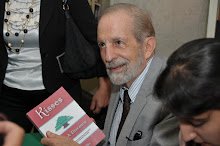In the midst of the well-deserved uproar in response to the unfolding Penn State child abuse scandal, an unintended opportunity has presented itself to university officials to rein in the run amok college athletic scene.
There was a recent recruiting scandal at UCF, one that was completely overshadowed by the Penn State debacle, but symptomatic nonetheless of the same problem. To UCF President Hitt's credit, he took quick and decisive action to regain control of the athletic department and fired those who were in charge of overseeing athletics.
The talking heads have had a field say with nearly every columnist and TV pundit agreeing that the football behemoth has been allowed to dominate college campuses at the expense of just about everything else. All agree that the situation needs to be changed. College sports long ago stopped having anything to do with the college or university's mission—assuming that it to provide an education. In fact, the term "athletic scholarship" has become an oxymoron on a par with "friendly fire."
I've heard a lot of hand-wring commentary but none that really suggests a solution. Why isn't there a universal code of conduct for college campuses endorsed by all universities (maybe even the NCAA although it has become part of the problem) that at a minimum would call for the following:
· Instruct all employees and students (that included coaches, players, and staff) that they are to bound to notify the police if they see any type of criminal activity, (sexual or physical) taking place. After that is done, they are to notify their superiors.
· Ban athletic dorms and have athletes live with the other "less privileged" students.
· Place limits on the amount of practice time allotted for sports to insure enough class time for student-athletes.
· Inform campus police that any and all criminal activity must also be reported to the civil authorities. (The "what happens in Vegas stays in Vegas" mantra must be eliminated.)
· Inform everyone that violations of this policy will be cause for dismissal or expulsion.
This not intended to be a complete list, but a good start. If the leaders of institutions of higher learning want to reassert their academic mission and regain control of their campuses, there was never a more perfect opportunity to do so. Public opinion is running very high in their favor, and against what college sports has become. So, don't blow it.






